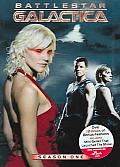
Whenever people stop me on the street, they always ask me the same thing: "Why do you wear shoes with rounded soles?" Sometimes they also ask me, "What's your new book about?" I tell them that aliens contact Earth and everything gets screwed up by the President of the United States, a fitness fanatic, religious zealot, a bit dim, and skeptical of science, who launches an attack against the aliens in the absence of any evidence of a threat. Inevitably, people's reply is the same: "Where do you get your ideas?"
I get my ideas from things I love. And what I love is Star Trek and Woody Allen movies. So I put them together. If I may say so, I think the genius of my little book is that I put Star Trek into Woody Allen, rather than the other way around because it would not have worked. The Borg would have arrived and said, "You will be assimilated." And he would have said, "If I could interject one thing at this juncture in the conversation, one complication if you will, I have a severe allergy to peanuts and agoraphobia and terrible digestion and these qualities will not serve you well in your quest for intergalactic domination."
They would not have assimilated him.
I believe there is an untapped market for science fiction and satire. My agent is currently shopping my new book in which Mark Russell attacks Moonbase Alpha with lethal song parodies but is thwarted when he can't get his piano in through the airlock. I am also developing a screenplay, a new Terminator sequel starring Gallagher as a shape-shifting watermelon smasher.
÷ ÷ ÷
Another essential premise of my book, First Contact, is that the 24-year-old attaché to the President, 932nd in line for the job, succeeds his principal. This follows an extremely precise retaliatory attack by the well-meaning aliens, which takes out every member of the American government save one. Happily, it leaves intact the golf course under which the government bunker was constructed. Happier still, the President's liege man — now President himself — does a splendid job, despite the fact that, prior to this, his primary responsibilities were getting the president's lunch and his dry cleaning.
This highly implausible premise led me to investigate the provisions that have been made in real life for responding to a potentially catastrophic attack. Patriotic Americans committed to preserving our way of life in the face of threats by enemies seen and unforeseen should be concerned with the continued vibrancy of a little-known but crucially important institution known as the Continuity of Government Commission. A project of the American Enterprise Institute, the Commission's charge is to ensure the continuity of baseball, apple pie, and the filibuster in the event of catastrophic attack.
 Students of fabricated history know the dramatic importance of orderly succession. In Battlestar Galactica, the Colonial Fleet has a nifty system for determining the presidency in the wake of a cataclysmic event. Everyone signals in with an interstellar transmitter and the receiver determines the last man standing. In BSG, the last man standing following the Cylon attack is the Secretary of Education, Laura Roslin, 43rd in the line of succession. Roslin's ascension to the presidency is pretty smooth given the impending genocide and, in the long run, things work out pretty much as well as could be hoped for. In my own book, it's the job of the sergeant-at-arms to determine who succeeds the President. True, the job falls to a 24-year-old, but the point is they had a system. Things worked out far less well in Jericho where the order of succession was left to politicians to sort out among themselves.
Students of fabricated history know the dramatic importance of orderly succession. In Battlestar Galactica, the Colonial Fleet has a nifty system for determining the presidency in the wake of a cataclysmic event. Everyone signals in with an interstellar transmitter and the receiver determines the last man standing. In BSG, the last man standing following the Cylon attack is the Secretary of Education, Laura Roslin, 43rd in the line of succession. Roslin's ascension to the presidency is pretty smooth given the impending genocide and, in the long run, things work out pretty much as well as could be hoped for. In my own book, it's the job of the sergeant-at-arms to determine who succeeds the President. True, the job falls to a 24-year-old, but the point is they had a system. Things worked out far less well in Jericho where the order of succession was left to politicians to sort out among themselves.
Sadly, the annals-of-things-that-actually-happened suggest we should fear the worst in this scenario. Al Haig's untimely death last month reminds us of the events of 1981 and the uncertainty following the attempted assassination of Ronald Reagan. Haig, then Secretary of State, told the White House Situation Room, "The helm is right here. And that means right in this chair for now, constitutionally." He was referring to his own chair, of course, even though the chair was not specifically mentioned in the Constitution.
Some worried that Reagan's attempted assassination was part of a Soviet plot. Temperatures were high. Haig popped into the briefing room to assure the nation that no nuclear measures were being contemplated. At approximately the same moment, Defense Secretary Caspar Weinberger was ordering pilots of nuclear bombers into the air. Haig was angry when he found out. Cap said he was calling the shots. Haig told him he had better read the Constitution. But Weinberger couldn't find his reading glasses and things pretty much came to a standstill. Point is, you need a system.
 Reminded of this history, I investigated whether the situation has improved at all in the past three decades. It has not, and it quickly became obvious to me that our best hopes are with the Continuity of Government Commission. The Commission astutely points to the following problems (among others) with the order of succession:
Reminded of this history, I investigated whether the situation has improved at all in the past three decades. It has not, and it quickly became obvious to me that our best hopes are with the Continuity of Government Commission. The Commission astutely points to the following problems (among others) with the order of succession:
1. All the Figures in the Line of Succession Live and Work in Washington, D.C. Undeniably true.2. Congressional Leaders in the Line of Succession. Problematic for a host of reasons.
3. The Order of Succession. Really one of the glaring deficiencies with the order of succession.
Happily, the Commission draws attention to the crux of the problem: there is no system for adjudicating who is in charge. The Commission illustrates this with a gripping story in which an airplane is flown into the Capitol on inauguration day. Everyone is feared dead. The Secretary of Agriculture reluctantly resigns his office and assumes the Presidency. But then, just after midnight, a cry for help is heard in the rubble. The Speaker of the House has survived. He assumes the Presidency and, in the wake of it all, the nation is left without a secretary of agriculture. In response, the Commission offers this suggestion: "Clarify Procedures for Incapacitation, especially for Lower Profile Officials in the Line of Succession."
The Commission's keen insights extend to the legislative branch, too. For example, it notes: "The House of Representatives would be severely affected by mass vacancies caused by a catastrophic attack." To bring this home, the Commission offers the following cautionary tale:
It is 11:30 a.m., inauguration day. Thousands await the noon hour when a new president will take the oath of office. Television networks have their cameras trained on the West Front of the Capitol, beaming live coverage of the event into millions of homes around the world. Suddenly the television screens go blank! Al Qaeda operatives have detonated a small nuclear device on Pennsylvania Avenue. A one-mile-radius circle of Washington is destroyed. Everyone present at the Capitol, the White House, and in between is presumed dead, missing, or incapacitated. The death toll is horrific, the symbolic effect of the destruction of our national symbols is great, but even worse, the American people are asking who is in charge, and there is no clear answer.
Yes, even worse. And yet, the Commission and its good work left me vaguely disquieted. One wants to depend on the constancy of such a group. But many of the members of the Commission are quite old. Charles Freid is 75. Tom Foley is 80. Fred Iklé, an undersecretary of state in the Reagan administration, is 85. And they're among the young ones. Nicholas Katzenbach is 88. Max Kampelman was a conscientious objector to World War II. The chairman, Gerald Ford, is, sadly, dead.
Yet, cause for hope can be found. The Commission remains productive. It issued its report on the presidency just six months ago. Arguably, the three years since Ford's death have been his most fecund period. But the lack of continuity in the Continuity of Government Commission is unsettling to say the least. And one has to ask: if we cannot find comfort from fiction in the real world, wherever can we find it?